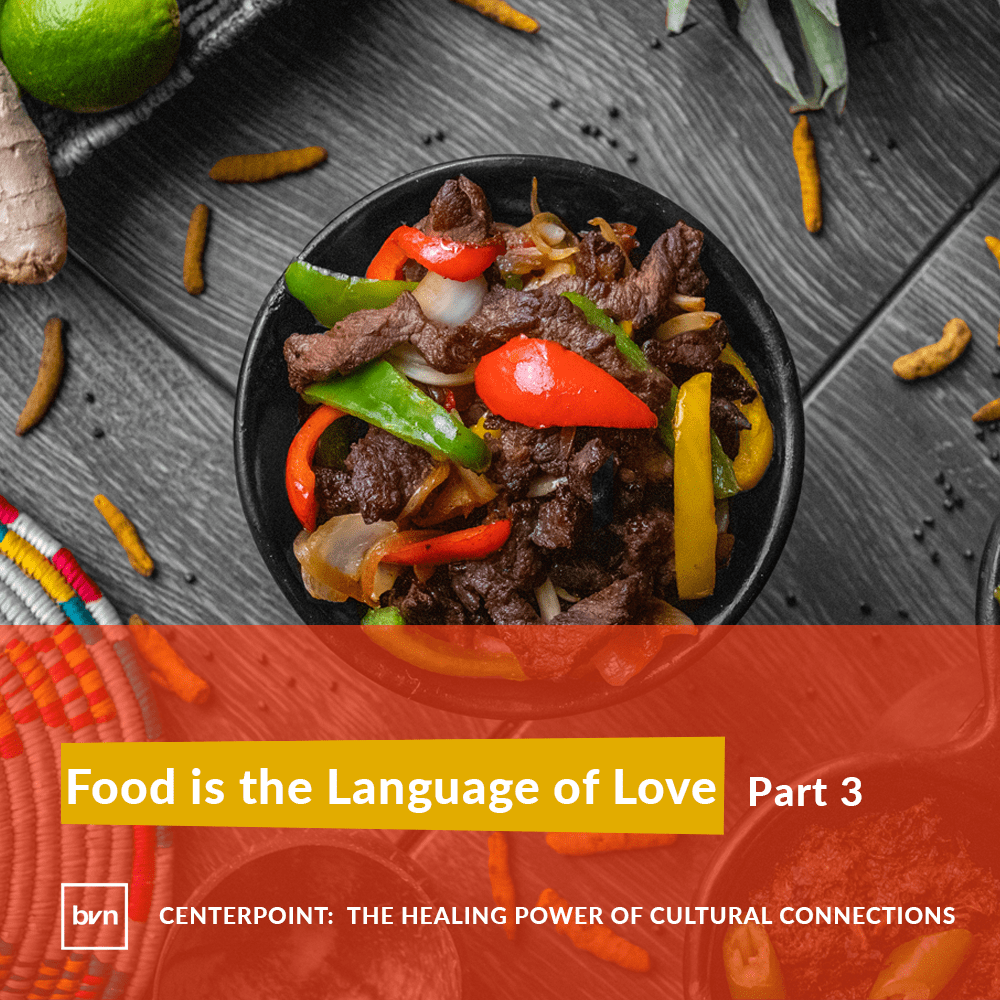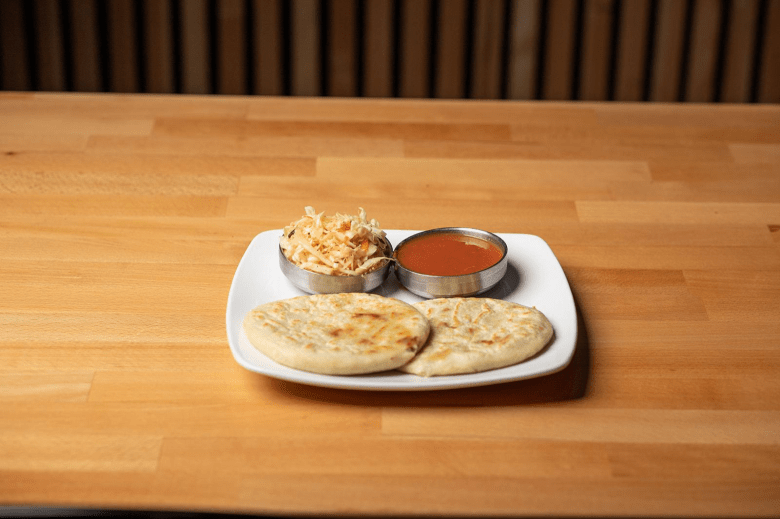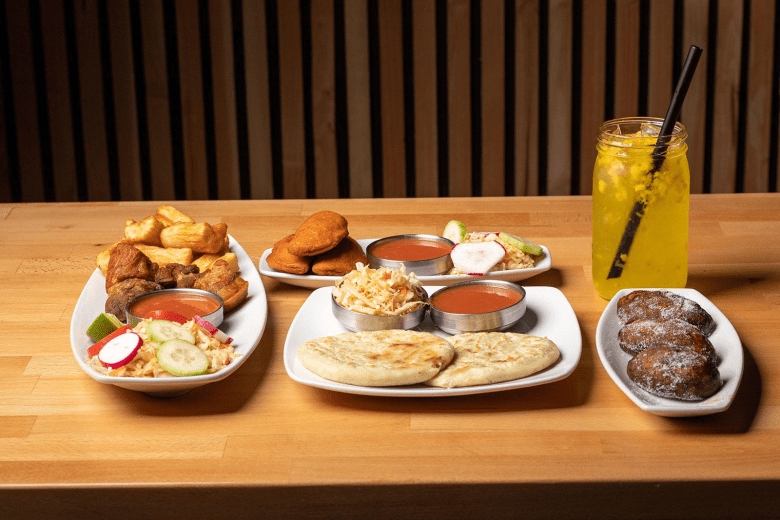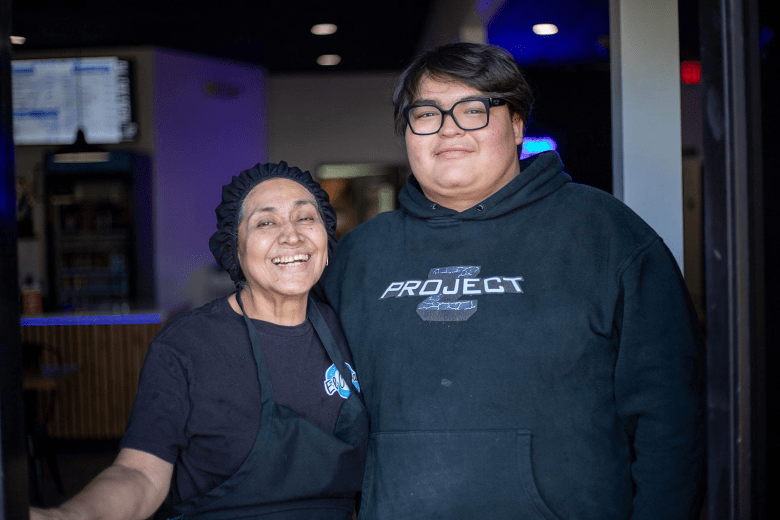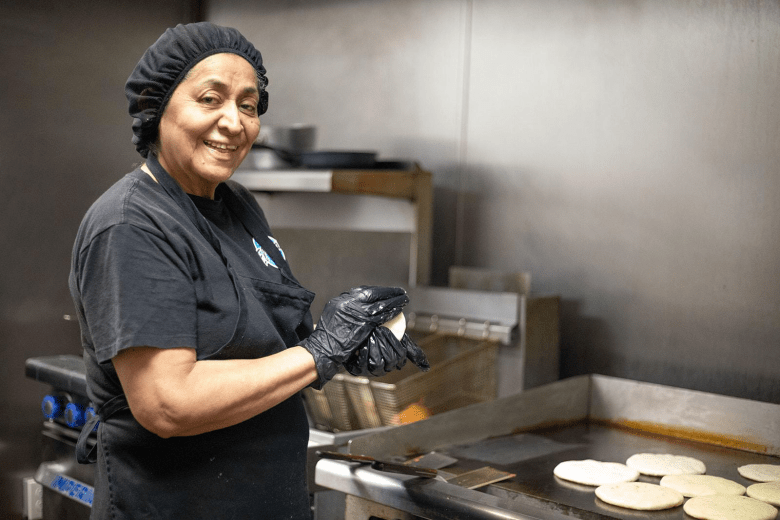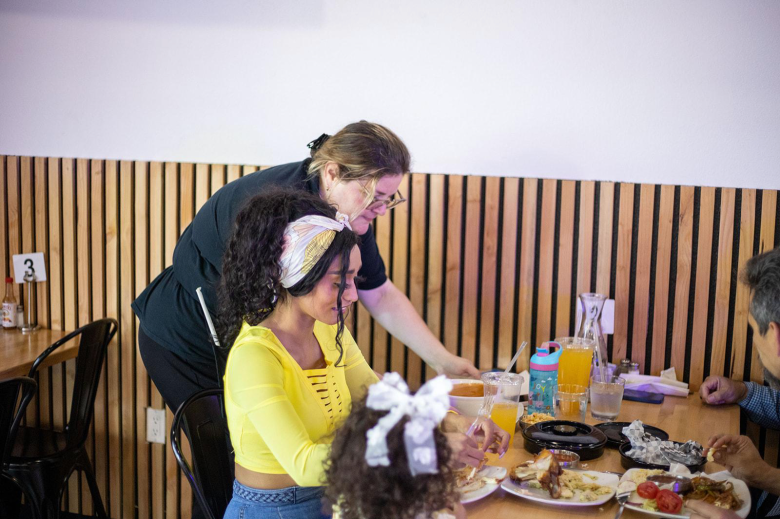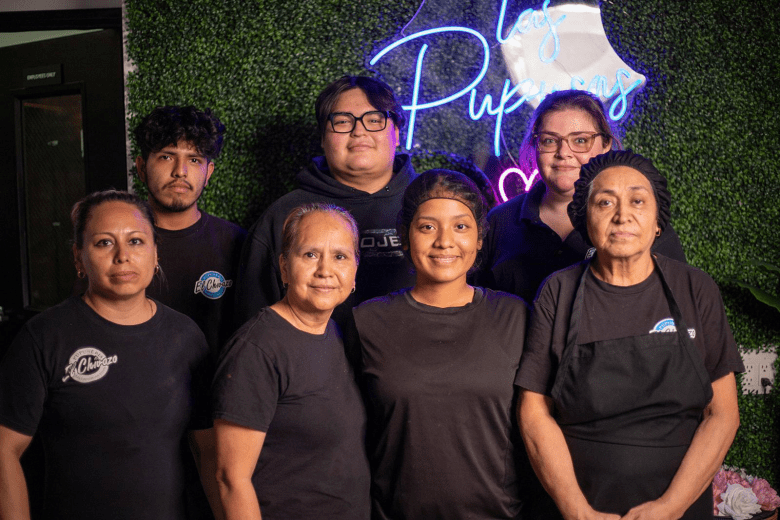Last Updated on December 4, 2023 by BVN
Luca Martinez
As a young girl growing up in La Libertad, a city in El Salvador, Patricia Castellanos recalls her grandmother waking up at 5 a.m. to make pupusas.
The food would serve as breakfast and lunch for the family whether they were out working at a coffee plantation or exploring the country’s capital for the day.
“I think I grew with a pupusa,” said Castellanos, while chuckling.
Back then, Castellanos’ grandmother would use only beans and cheese to fill the pupusas — thick rounds of fresh masa, stuffed with any combination of ingredients. At the time, other stuffings, particularly meats, were hard to come by.
But today, at Castellanos’ El Chivazo Salvadorian Restaurant, customers have no shortage of ingredients to choose from. Opened last year in Corona, the restaurant is a tribute to Castellanos’ late mother, who like many of the women in the family, excelled at cooking
Pride in “Little Thumb”
The family-run restaurant is a testament to Castellanos’ upbringing in the pulgarcito, (little thumb) a slang term for El Salvador since it is the smallest country in Central America. Yet for Castellano, 48, the establishment has a chance to be much more. It’s an opportunity to showcase traditional culture, while also highlighting the progress within their community.
“I want people to see we can do more, that we’re not as stuck in the past and we are strong enough to do whatever we want to,” Castellanos said.
That past is a reference to El Salvador’s turbulent history, marked by poverty and violence. Castellanos came of age at a particularly tough time, when the nation was in the midst of a 12-year civil war that claimed more than 75,000 civilian lives.
At 14, Castellanos immigrated to the United States alongside her mother because of the ongoing war. She completed high school in Anaheim, and eventually began a long career in staffing services. All the while, her mother raised the idea of opening a restaurant to cook and serve their favorite Salvadorian dishes.
Dreams do come true
When the opportunity to own a restaurant finally came up, Castellanos jumped at the idea while thinking about her mother who passed away three years ago.
“It was her dream to have one,” Castellanos said.
The restaurant has become a family affair with Castellanos’ husband, youngest son, older sister, two aunts as employees. All together, they serve several well-known Salvadorian dishes including tamales de elote (corn tamales), platanos fritos (fried plantains with beans and sour cream), yuca frita con chicharrón (fried yuca with pork) and pan con pollo (shredded chicken drenched in tomato sauce and stuffed into a french roll with vegetables).
There are of course also pupusas —the national dish of El Salvador. They are made with corn flour that is mixed with cold water and patted into shape by hand. Then, they are packed with the customer’s choosing. Those ingredients can be beans, pork, cheese, jalapeno, zucchini, steak, chicken, shrimp or chorizo. At El Chivazo, nearly all the ingredients are made from scratch.
“It’s very traditional, any Salvadorian pupusas are the first thing we look to have,” Castellanos said.
The restaurant’s best-selling pupusa are the revueltas, a combination of beans, molten cheese, and shredded pork that Salvadorans call chicharrón. These are typically eaten with two principal condiments — curtido (a type of lightly fermented cabbage relish) and a tomato salsa infused with garlic and fresh herbs.
A welcoming community
Since opening last November, Castallenos said the Riverside County community has welcomed the restaurant with a desire to learn more about its origins. She described instances of families sitting at their tables for hours, even after finishing their meals.
Most customers are not Salvadorian, Castallanos said, but they will ask about the current state of the country or her backstory. She expressed joy in recalling her conversations, telling people her experiences as a young girl in the country. Some people even end the discussion with a longing to visit El Salvador.
“It makes me very happy when I can tell them about it,” Castallanos said. “We have so many different cultures here and… it makes me proud that we can show them that we do have good food too.”
The country’s civil war ended in 1991, with crime decreasing over the last few years.
Castellanos first returned to her home country in 2002, and hasn’t stopped visiting since.
“I love El Salvador,” she said. “That’s my home.”
Looking to the future
In the months that follow, she plans to showcase more of her homeland in the restaurant, including a drawing of El Salvador and its various states on the wall. Castellanos also wants illustrations of the loteria characters. As a child, she would play the traditional game of chance with her grandmother.
But there must be a balance between traditional and modern, Castellanos said. She prioritized renovating the restaurant first to highlight the advancement of her country and people. Her goal is to demonstrate to Salvadorians what is attainable in the United States, while offering food that continues the traditions of her grandmother and mother.
“I want to provide services and to give them food that I would love to eat. That my family will love to eat… food made with desire and love,” Castellanos said.
El Chivazo Salvadorian Restaurant is open Monday to Sunday from 8 a.m. to 8 p.m. and located at 514 S Smith Ave, Ste 108, Corona, CA 92882.
This project was supported in whole or in part by funding provided by the State of California, administered by the California State Library.
Food is the Language of Love
Part 1: Everything Resolves Around Food
Part 2: A Restaurant Unlike Any Other
Part 3: The Taste of “Little Thumb”
Part 4: Spreading Nicaraguan Culture through a Dream Come True



